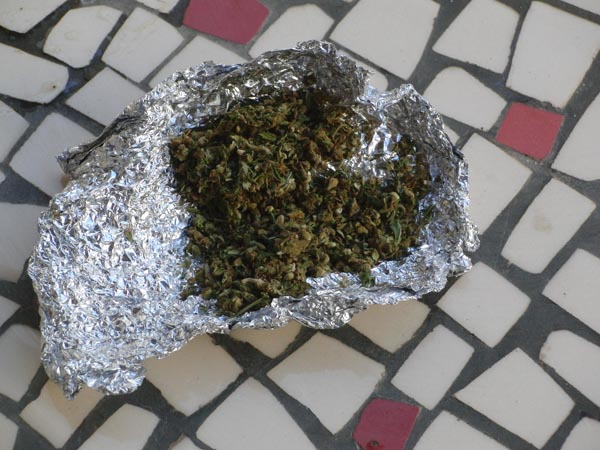Marijuana, weed, pot, dope, grass. They’re different names for the same drug that comes from the cannabis plant. You can smoke it, vape it, drink it, or eat it. Most folks use marijuana for pleasure and recreation. But a growing number of doctors prescribe it for specific medical conditions and symptoms.
Marijuana has mind-altering compounds that affect both your brain and body. It can be addictive, and it may be harmful to some people’s health. Here’s what can happen when you use marijuana:
The main psychoactive ingredient, THC, stimulates the part of your brain that responds to pleasure, like food and sex. That unleashes a chemical called dopamine, which gives you a euphoric, relaxed feeling. If you vape or smoke weed, the THC could get into your bloodstream quickly enough for you to get your high in seconds or minutes. The THC level usually peaks in about 30 minutes, and its effects may wear off in 1-3 hours. If you drink or eat pot, it make take many hours for you to fully sober up. You may not always know how potent your recreational marijuana might be. That also goes for most medical marijuana.
It May Affect Your Mental Health
Not everyone’s experience with marijuana is pleasant. It often can leave you anxious, afraid, or panicked. Using pot may raise your chances for clinical depression or worsen the symptoms of any mental disorders you already have. Scientists aren’t yet sure exactly why. In high doses, it can make you paranoid or lose touch with reality so you hear or see things that aren’t there.
Marijuana can cloud your senses and judgment. The effects can differ depending on things like how potent your pot was, how you took it, and how much marijuana you’ve used in the past.
What exactly is fake weed?
Fake weed is manmade cannabinoid chemical usually applied to leaves you can smoke. It almost looks like weed and almost feels like it, but it is NOT. It smells like weed too but it is characterized by an unpredictable high with dangerous side effects.
How to Spot Fake Weed Plant
Fake weed is easy to spot, especially if you’re comparing its appearance to that of normal cannabis. Instead of beautiful frosty nugs sold legally in childproof glass jars or plastic containers, synthetic cannabis is sold in easy to open foils and plastic packages. The drug itself is usually sprayed or otherwise applied to what is commonly referred to as “plant matter” though the exact plant isn’t consistent. Often, the most natural part of synthetic cannabis is the plant matter, even on packages that advertise their product as natural.
Imagine tea leaves coated in unpredictable and invisible poison and you probably have a pretty good idea of what fake weed looks like. Foil packets, loose-leaf, and unknown chemicals. Either way, keep an eye open for joints, pre-packed bowls, and other methods of smoking that can make determining real weed from fake weed difficult.
How to Quit Smoking Marijuana
Unfortunately, quitting pot isn’t always easy for many people. As mentioned, people who smoke weed regularly may develop significant cannabis dependence. Once this develops, quitting marijuana may result in several uncomfortable experiences, including cravings and turbulent moods. Trying to quit on your own is possible, but it can be challenging without the accountability, support, and guidance of professional treatment. To quit smoking marijuana, you may benefit from the supervision and care provided through an addiction treatment program.
Treatment can help people remain safe and comfortable while quitting marijuana. The supervision and support of treatment can decrease the likelihood of a person relapsing on their drug of choice. Each person’s recovery needs may be somewhat unique and may benefit from individualized treatment plans. When someone is struggling to quit marijuana on their own, has a cannabis use disorder, or suffers from marijuana dependence, cannabis-specific treatment may be their best option.
Quitting Cold Turkey
If you must stop smoking marijuana immediately at home, remember to surround yourself with a wide support network. In times of withdrawal and craving, having safe and healthy people around you can serve as a way to protect you against relapse. Here are some of our suggestions:
- Make a plan. Having a clear goal in mind (in this case, abstinence from marijuana) can help a person who is trying to quit drugs stay on track. By yourself or with your support system, make a plan for how you’ll quit marijuana and remain sober.
- Get rid of marijuana-related paraphernalia. While quitting marijuana at home, you may wish to get rid of your paraphernalia associated with smoking and cannabis use, as well, such as bongs, pipes, bowls, and vapes.
- Identify triggers and strategize how to deal with them. Your personal triggers for wanting to use marijuana may differ from someone else’s. It is necessary that if you are aiming to quit using weed, that you figure out what are your pressure points and strategize ways to healthily cope with them.
- Build a strong support network. When it comes to getting sober or at least reducing your drug use, it’s crucial to surround yourself with healthy and supportive people who want to help you stay on track with your decision to be abstinent. Building a strong support network will help you quit marijuana and provide you with the vital healthy connections one needs to stay abstinent.
Though our tips for quitting marijuana cold turkey may help, your best option may be to reach out to a treatment provider that specializes in cannabis abuse treatment for professional guidance on how to quit. With the recovery expertise of a treatment provider, one can determine their best course of action when trying to stop using this drug.
Addiction Treatment for Marijuana Abuse
Sometimes, quitting marijuana is difficult to do alone. If you can’t seem to quit weed cold turkey, you may want to seek professional help to cease marijuana use. American Addiction Centers offers multiple forms of treatment to help those abusing marijuana gain the skills to cope with craving and avoid their triggers. Therapy also helps improve on other skills, such as problem-solving and lifestyle management.
Addiction treatment providers may use several behavioral treatments to help those struggling with marijuana use, such as:
- Cognitive-behavioral therapy. Cognitive-behavioral therapy (CBT) is a form of behavioral therapy that focuses on treating a variety of mental health issues under the assumption that many problematic behaviors are borne from unhealthy thought patterns. With CBT, one can identify their negative thought patterns, learn healthier ways to cope with their emotions, and observe their negative thought patterns.
- Contingency management. Contingency management is a form of treatment that utilizes incentives and reward to reinforce healthy changes in an individual. When treated through a contingency management method, providers may give patients tangible rewards that reinforce their positive behaviors (like staying sober).
- Motivational enhancement therapy. Motivational enhancement therapy strives to resolve any ambivalence toward treatment and prompt an internally-motivated desire to change in people suffering from substance abuse issues.
One solution to the unpleasantness and potential unpredictability of withdrawal is to undergo the process with the supervision and support of a comprehensive rehabilitation program. The support and care offered through professional rehabilitation may help people better manage the withdrawal period, which might otherwise prove to be a significant hurdle to ongoing recovery efforts. Though presently there are no pharmacologic interventions approved for managing cannabis withdrawal or that specifically treat cannabis use disorders, close supervision, medications for certain symptom relief, and other supportive care measures can help to pave the way for long-term recovery. SEE: How Does Smoking Affect Your Brain
This Information is provided for Harm reduction and Informational purposes only Public Health Nigeria does not support any form of substance abuse.






